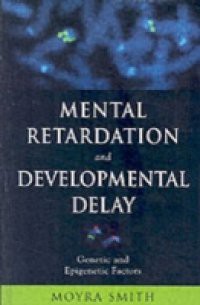Recent advances in neuroscience and genetics have greatly expanded our understanding of the brain and of the etiological factors involved in developmental delay and mental retardation. At the same time, the human genome project has yielded a wealth of information on DNA sequencing, regulation of gene expression, epigenetics, and functional aspects of the genome, which newly propels investigation into the pathogenesis of mental retardation. This book makes readily available current knowledge on the subject and applies it to clinical medicine, providing information essential to neurologists, geneticists, physicians and pediatricians as they search for the causes of mental handicap in their patients. Introductory chapters cover normal and abnormal brain structure, neurogenesis, neuronal proliferation, and signal transduction. Latter chapters delve into discussions of both the environmental factors that may lead to neurocognitive deficits and the cytogenetic, biochemical and molecular defects specifically associated with mental retardation. One chapter reviews gene involvement in non-syndromic mental retardation, autism, and language deficits, as well as multifactorial and genetically complex inheritance. The text concludes with a clinically practical discussion of carrier detection, presymptomatic diagnosis, and treatment of various genetic diseases through enzyme therapy, substrate deprivation, and the use of hemapoietic stem cells.

